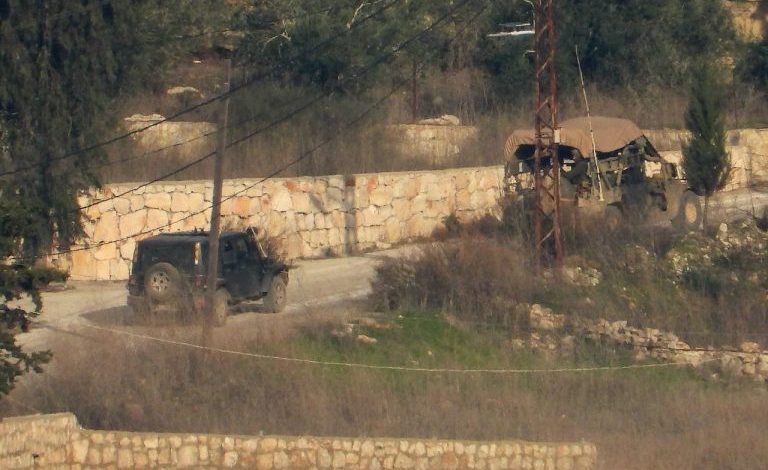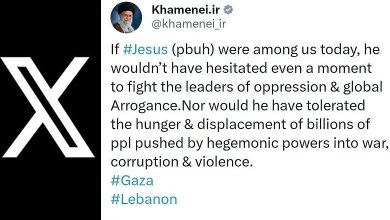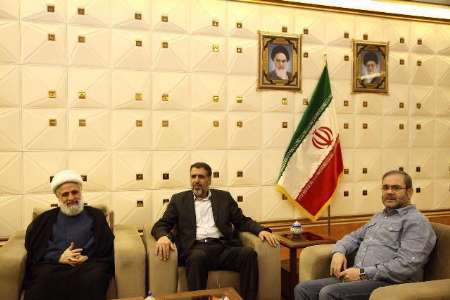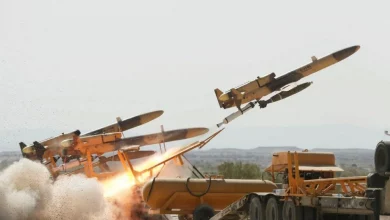Explainer on ‘israeli’ Withdrawal Deadline from Lebanon: Implications and Hezbollah’s Position
Reports indicate that Israeli forces have utilized the 60-day time frame allotted for complete withdrawal from designated territories to...

The Israeli forces took advantage of the 60-day deadline, set for the withdrawal from areas occupied during the recent conflict in Lebanon, by engaging in numerous incursions and assaults, which clearly contravened the ceasefire agreement.
The adversary has escalated its actions, engaging in activities such as bulldozing roads, damaging civilian infrastructure, setting homes ablaze, and demolishing mosques and buildings in southern Lebanon. The targeting of Hezbollah’s infrastructure is being used by Israeli forces as a justification for their aggressive measures. MP Ali Fayyad, a member of Hezbollah’s Loyalty to Resistance bloc, affirmed in a statement to Al-Manar website that the developments in the border region surpass the mere targeting of infrastructure.
Conflict Leaves Southern Region in Crisis
Fayyad expressed concerns, stating, “The adversary aims to transform the border region into a ravaged, uninhabitable area. The question arises, what link exists between the Wazzani orchards—a contemporary agricultural expanse covering 10,000 dunams with almond trees, vineyards, and a variety of vegetables—and the reasons asserted by the Israelis? Why are they obliterating these lands?”
In a statement, he asserted that the acts of looting and theft are both systematic and persistent. He questioned the relationship between these aggressive measures and Israel’s assertions regarding military infrastructure in the region. He further noted that these actions appear intended to make the area uninhabitable, thereby hindering its reconstruction and revival for years to come.
Hezbollah’s Response to Alleged Violations
Member of Parliament, Fayyad, reaffirmed Hezbollah’s dedication to aligning with the Lebanese government’s policies regarding the region south of the Litani River. He highlighted that, “From the outset, we have complied with the government’s directives and honored its obligations concerning the area south of the river.”
Fayyad expressed criticism of the government’s actions, labeling the response as lacking strength and inadequacy. He further asserted that the government has not effectively employed all possible measures to counter Israeli assaults.
He emphasized that formal objections and minimal political interactions are insufficient. He called for a comprehensive international campaign, urging the Lebanese government to utilize all available resources to halt and deter Israeli aggression.
The government is urged to adopt a clear and unwavering position, rejecting any form of compromise. It is emphasized that the Zionist presence will not be tolerated beyond the stipulated sixty-day timeframe. Authorities are called upon to categorically oppose the continuation of this situation and implement a decisive strategy to uphold Lebanon’s rights and sovereignty.
**Consequences of Israeli Actions Under Scrutiny**
Ali Haidar, a specialist in Israeli affairs, told Al-Manar that Israel’s retreat from its commitments under the agreement was anticipated, as it started breaching the terms right from the beginning. He highlighted that Israel’s security-related justifications in specific regions could be managed through alternative solutions, thus avoiding these breaches.
Haidar proposed the deployment of international forces in geopolitically sensitive regions, highlighting that the presence of both the Lebanese Army and international forces south of the Litani River, in accordance with the existing agreement, negates any rationale for hostile activities by adversaries.
In response to inquiries regarding the potential for an imminent Israeli attack, Haidar claimed that Israeli forces might rationalize any aggression under the guise of “intelligence-gathering” or “security threats.” He highlighted, however, that the core problem rests with entities that conform to and exploit these justifications. Haidar emphasized that these assaults are integral to a wider strategy of US-supported pressure on the resistance movement in Lebanon.
Haidar stated that the United States recognizes the war did not succeed in meeting its strategic goal of eradicating the resistance.
He stated that in light of the widespread public and political challenges obstructing the American strategy, the United States is employing pressure tactics, including the ongoing occupation of certain regions and conducting repeated assaults.
In his concluding remarks, Haidar emphasized that the resistance will not endure the extended occupation, noting that the timing and methods of their actions will be contingent upon suitable conditions and relevant data.
This Sunday signifies 60 days since the ceasefire between Israel and Hezbollah was implemented, commencing on November 27. As stipulated by the agreement, Israeli forces were expected to complete their withdrawal from the occupied areas in southern Lebanon by this time.
The Israeli military has reportedly breached the terms of the agreement over a thousand times since its implementation. These actions are perceived as efforts to create an illusion of triumph for the domestic populace and to divert attention from unmet objectives during the conflict. The Israeli government is purportedly attempting to persuade settlers to return while maintaining its aggressive stance. In light of these ongoing incidents, questions arise regarding whether the Lebanese government will take firm measures to safeguard the nation’s sovereignty.




